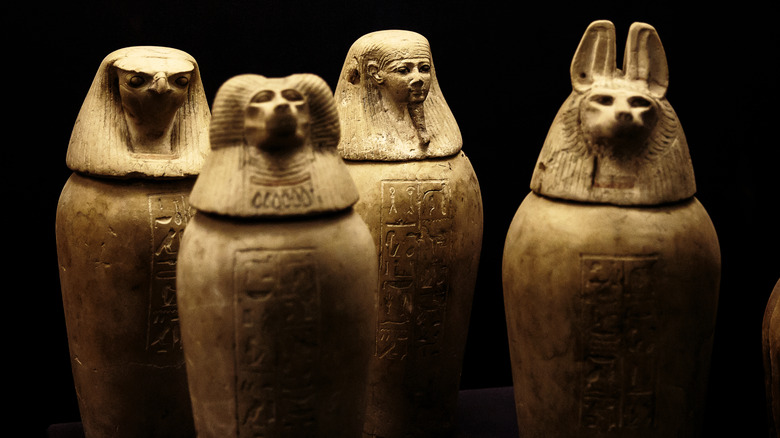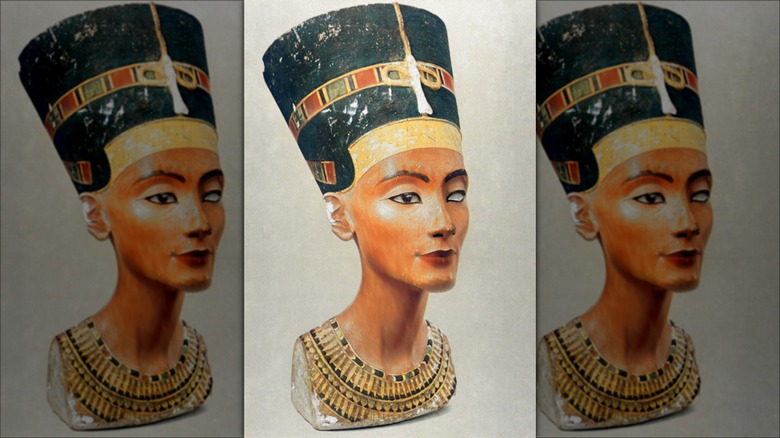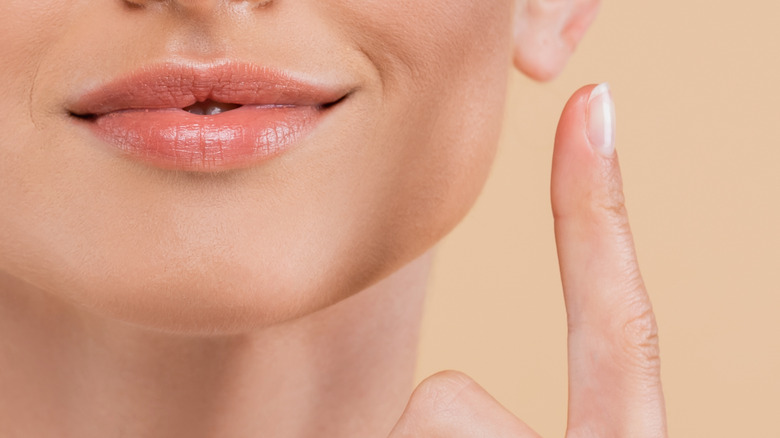Ancient Egyptians Had Some Interesting Uses For Animal Fat
Take a moment to think about your personal hygiene regimen — or even your cosmetics or skincare routines. Many products you might use like body wash, skin exfoliator, lotion, face masks, and more serve as tools to make you feel as radiant as reality allows. But the human desire for external beauty or feeling clean is hardly a new trend — it's been around for thousands of years, and dates as far back as ancient Egypt.
Considering the Egyptian civilization's heyday came to a close a little over two thousand years ago, it's safe to say the hygiene products we use now might seem a little ... well, different than what they used back then. (For example, Queen Cleopatra was said to take milk baths to keep her skin healthy and glowing, whereas now anyone can pop into a store and buy a small bottle of serum containing the same hydroxy acids, per Marie Claire.) Animal fat, however, was a very important ingredient in all things related to hygiene in the ancient Egyptian world, from hair gels to deodorants — and the ancient Egyptians had some curious recipes when making these products (via How Stuff Works).
Ancient Egyptians most likely used animal fat as a major ingredient for their cosmetics
With the hellish heat of the desert, it's no surprise that ancient Egyptians found it necessary to figure out how to keep their skin healthy — and they found their answer in what would now seemingly be an unconventional use of animal fat. By including animal fat as a base ingredient in many different concoctions, like ointments, they would then create cosmetics and perfumes that were worn by Egyptians in the lower and upper classes (via How Stuff Works).
In addition to this, ancient Egyptians — who were known to take baths daily and maintain a rigorous hygiene routine — had a plethora of hygiene products that they used, per How Stuff Works. Among these were deodorants and perfumes, and the majority of them were made by way of an assortment of ingredients, including minerals like malachite and galena, substances like honey, and — you guessed it — animal fat, per the World History Encyclopedia. In addition to skin-related care, other cosmetic items used by ancient Egyptians, such as hair gels, were also made by using animal fat, according to Phys.org.
The ancient Egyptians were resourceful when it came to their cosmetic creations
Hygiene products like deodorant were also known to have animal byproducts in them. According to the World History Encyclopedia, one such deodorant recipe created by the ancient Egyptians utilized ostrich eggs and crushed tortoise eggshells (including fat from these eggs) mixed in with plant-based ingredients like nuts and parts of tamarisk, otherwise known as a salt cedar tree. When blended into a cream, it became the ancient Egyptian version of what we would now call a natural, scent-free antiperspirant.
In fact, there's a good argument to be made that science as we know it today wouldn't be the same without the many major contributions of the ancient Egyptian civilization. Per the World History Encyclopedia points out, even the modern word "chemistry" actually gets its name from the language spoken and written by ancient Egyptians, which they themselves called "Kemet." The knowledge and advancements that the Egyptians provided models of cleanliness and hygiene in the ancient world — all of which are basic tenets in medicine — and ultimately helped people live healthier lives.


